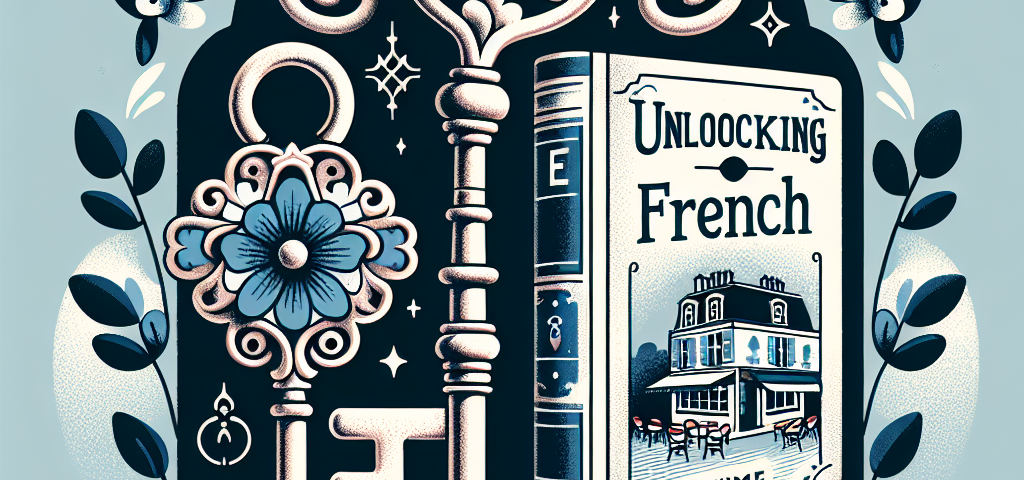
From Beginner to Fluent: The Ultimate Guide to French Learning Tools
May 30, 2025
Unlocking the Secrets of French Syntax: Tips and Tricks!
May 30, 2025
Learning a new language can be both exciting and daunting. Among the various languages around the world, French stands out with its beautiful pronunciation, rich literature, and significant cultural influence. However, many beginners often find French grammar challenging. This guide aims to break down essential grammatical concepts and provide simple strategies to make learning French as easy as possible.
1. Understanding the Structure: Nouns and Articles
Nouns
In French, nouns have genders: they are either masculine or feminine. Generally, masculine nouns use the article "le," while feminine nouns use "la." For instance:
- Le livre (the book) – masculine
- La table (the table) – feminine
Articles
French nouns often come with definite (le, la, les) or indefinite articles (un, une, des). Understanding when to use each type will help you construct sentences correctly.
Tip:
A simple way to remember the gender is to associate objects with familiar masculine or feminine nouns. For example, think of “la lune” (the moon) as feminine because "mother" is often associated with nurturing, and the moon is calming and gentle at night.
2. The Verb Be: "Être"
One of the cornerstones of French grammar is the verb "être" (to be). It’s essential for forming sentences, indicating states of being, and creating compound tenses.
Conjugation:
- Je suis (I am)
- Tu es (You are)
- Il/Elle est (He/She is)
- Nous sommes (We are)
- Vous êtes (You are – formal or plural)
- Ils/Elles sont (They are)
Tip:
Use flashcards to memorize the conjugations. Write the pronoun on one side and its corresponding verb form on the other. Regular practice will help reinforce your memory.
3. The Verb Have: "Avoir"
Alongside "être," the verb "avoir" (to have) is crucial for expressing possession and forming various tenses.
Conjugation:
- J’ai (I have)
- Tu as (You have)
- Il/Elle a (He/She has)
- Nous avons (We have)
- Vous avez (You have – formal or plural)
- Ils/Elles ont (They have)
Tip:
Create simple sentences using "avoir." For example, "J’ai un chien" (I have a dog). This practice will help you build your confidence in using the verb.
4. Adjectives: Agreement is Key
Adjectives in French must agree in gender and number with the nouns they modify. For example:
- Un livre intéressant (An interesting book) – masculine
- Une table intéressante (An interesting table) – feminine
Tip:
When learning new adjectives, note their masculine and feminine forms. An easy way to remember is to associate the adjective with a specific noun that matches its gender.
5. Making Questions
In French, there are several methods to form questions:
- Using inversion: For example, Avez-vous un chien? (Do you have a dog?)
- Using "est-ce que": For example, Est-ce que vous avez un chien?
- Raising your intonation in informal speech: For example, Tu as un chien?
Tip:
Practice asking and answering simple questions in conversation to improve your fluency and comprehension.
6. Basic Sentence Structure
The typical sentence structure in French is Subject-Verb-Object, similar to English. For example:
- Je mange une pomme. (I eat an apple.)
Tip:
Practice forming sentences using various subjects and verbs. Start with basic vocabulary and gradually incorporate more complexity.
7. Resources for Further Learning
There are numerous online platforms and apps that offer structured lessons in French grammar:
- Duolingo: Great for daily practice and gamified learning.
- FluentU: Uses real-world videos to enhance language skills.
- Babbel: Focused on vocabulary and conversational skills.
Tip:
Combine multiple resources to keep your learning dynamic and engaging. Find what suits your learning style best—whether it’s videos, textbooks, or immersive conversations.
Conclusion
Learning French grammar doesn’t have to be overwhelming. By focusing on the essentials, practicing regularly, and employing creative memorization techniques, you can unlock the beauty of the French language. Remember, consistency is key. Enjoy the journey as you explore this enchanting language, and soon you’ll find yourself communicating with confidence! Bonne chance! (Good luck!)

